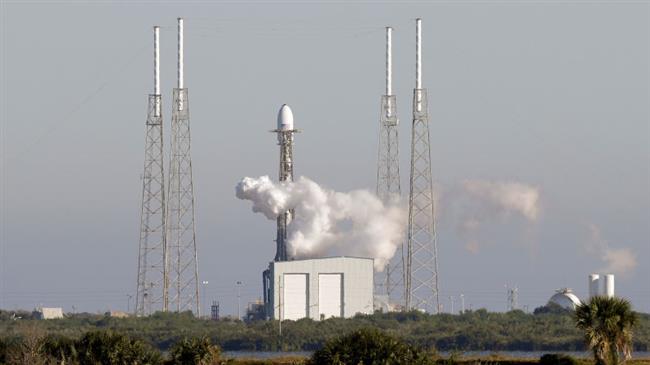US military launches most powerful GPS satellite into orbit
The US military has finally launched its most powerful Global Positioning System (GPS) satellite into space after delaying the operation several times.
SpaceX, a private space firm, put the roughly $500 million US Air Force into orbit on board the Falcon 9 delivery vehicle from Cape Canaveral, Florida on Sunday.
Heather Wilson, secretary of the Air Force, said the “next-generation” GPS satellite was three times more accurate than all previous versions and eight times better at countering jamming and other electronic warfare tactics.
The GPS III satellite, made by Lockheed Martin, has a lifespan of 15 years. It was originally scheduled to blast off in 2014 but the launch was delayed due to numerous production issues.
After years of work, the satellite was supposed to soar last Tuesday but concerns about possible rocket malfunctions as well as bad weather postponed the flight.
Successful deployment of GPS III SV01 to medium Earth orbit confirmed. pic.twitter.com/4lhJpwdsip
— SpaceX (@SpaceX) December 23, 2018
Nicknamed Vespucci after a 15th-century Italian explorer who calculated Earth’s circumference to within 50 miles (80 kilometers), the satellite was the first of 32 that Lockheed will produce over the coming years.
According to Lockheed spokesman Chip Eschenfelder, the contracts for the Air Force GPS III program are worth a combined $12.6 billion.
SpaceX, a creation of American billionaire Elon Musk, won the $83 million Air Force contract to launch the satellite in 2016, a year after suing the US military for granting a multi-billion, non-compete contract to United Launch Alliance, a partnership of Boeing and Lockheed.
The GPS III project allows US military operators to monitor performance of the civilian signals.
What happens when GPS monopoly starts falling apart? Great take from TC via @trucksvc https://t.co/2xNy4dPahL
— Yehoshua Zlotogorski (@yehoshzl) December 24, 2018
The US-made GPS is currently the world’s most widely used satellite navigation system, followed by Russia’s GLONASS and the European Union’s Galileo.
China has also launched several satellites to set up its own version of the advanced system, called Beidou. Beijing plans to expand Beidou globally with a network of 35 satellites.
MSF chief warns Israeli ban on Gaza operations will be 'catastrophic' for millions
‘No illegal demands’: Shamkhani says US talks may bear fruit if respect, logic shown
VIDEO | Iran prepared for both scenarios: Talks or self-defense
Russia slams ‘unacceptable’ US pressure on Cuba as Trump seeks oil cutoff
Epstein advised ex-Israeli PM Ehud Barak to cooperate with US AI firm Palantir
Iran, US to hold nuclear talks in Istanbul: Report
Israeli strikes kill at least one, injure several people in south Lebanon
VIDEO | Imam Khomeini at Iran’s Neauphle-le-Château: Revolutionary influence in France










 This makes it easy to access the Press TV website
This makes it easy to access the Press TV website